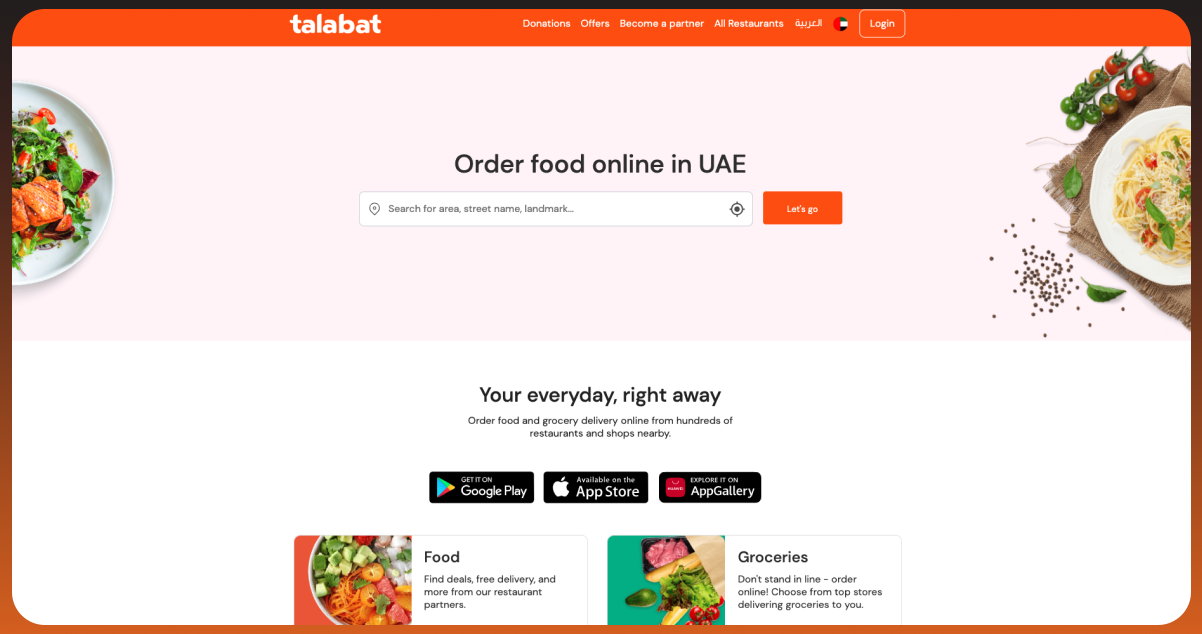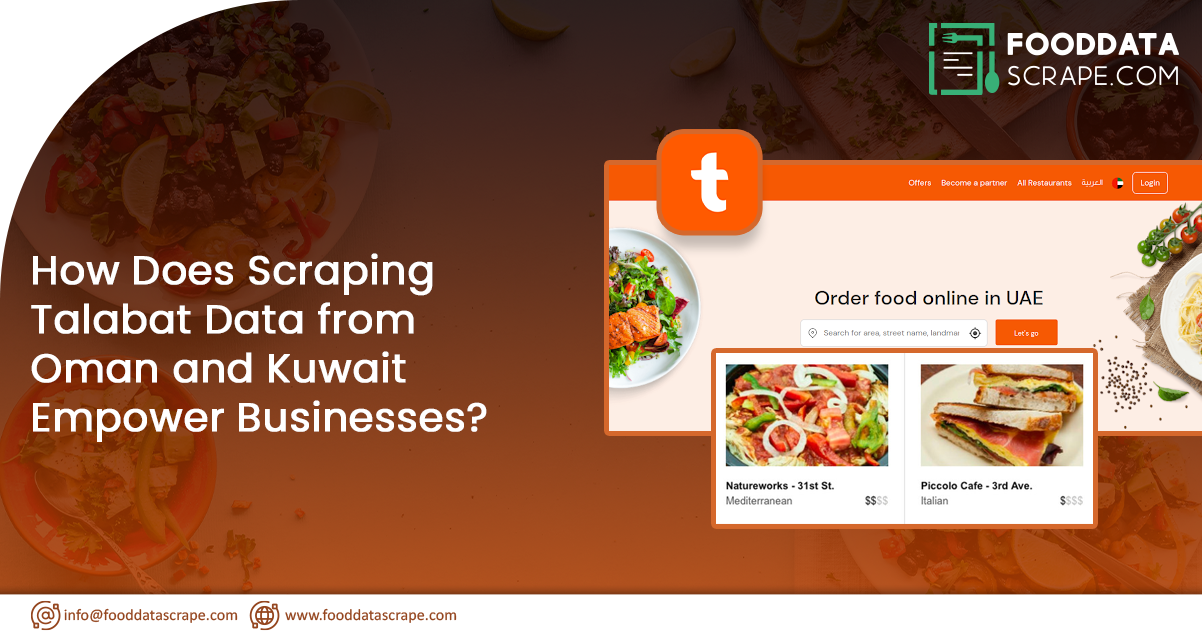In Oman and Kuwait, the food delivery landscape has witnessed a remarkable transformation, becoming an integral part of the culinary experience. With the rapid rise of digital platforms like Talabat, the convenience of ordering food online has surged. This evolution has spurred intense competition among restaurants and delivery services, each vying to capture a larger share of the burgeoning market. As the demand for seamless and swift delivery experiences grows, the two nations are witnessing a dynamic culinary revolution marked by innovation, diverse culinary offerings, and a race among providers to deliver unparalleled service in the flourishing food delivery sector. In the vibrant landscapes of Oman and Kuwait, the food delivery industry is experiencing a notable shift with the increasing prominence of food data scraping. As digital platforms like Talabat dominate the scene, businesses recognize the strategic value of scraping food delivery data. This emerging trend allows stakeholders to glean valuable insights into consumer behaviors, restaurant trends, and market dynamics. From optimizing menus to refining delivery strategies, restaurant data scraping is gaining prominence as a pivotal tool, enabling businesses to stay competitive and responsive to the evolving demands of Oman and Kuwait's burgeoning food delivery sector.
List of Data Fields

- Restaurant Name
- Locations
- Contact Details
- Operating Hours
- Menu Details
- Pricing
- Delivery Time
- Reviews
- Ratings
- Cuisine Categories
- Restaurant and Menu Images
- Special Promotions
- Discounts
- Payment options
About Talabat

Talabat, a leading online food delivery platform, has become a culinary cornerstone in the Middle East, including Oman and Kuwait. Connecting consumers with an extensive array of local and international restaurants, Talabat provides a seamless digital dining experience. Users can explore diverse menus, place orders, and enjoy swift deliveries. As a pioneer in the region's food delivery sector, Talabat has revolutionized dining habits, offering convenience and variety. With a user-friendly interface and a commitment to exceptional service, Talabat continues to shape the gastronomic landscape, catering to the evolving tastes and preferences of its vast and diverse customer base.
Scrape Talabat data to gain valuable insights into restaurant trends, menu popularity, pricing strategies, and customer preferences, empowering businesses with actionable information for strategic decision-making and competitive positioning in the dynamic online food delivery landscape.
How do you scrape Talabat Oman and Kuwait Data?

This article will guide you through responsibly scraping data from these platforms, empowering businesses and enthusiasts alike.
- Understanding Talabat's Structure: Before diving into scraping Talabat data in Oman and Kuwait, familiarize yourself with Talabat's website structure. Identify critical sections such as restaurant listings, menus, customer reviews, and pricing.
- Choose Ethical Scraping Tools: Opt for scraping tools or frameworks that adhere to ethical standards. Respect the terms of service of Talabat to ensure responsible and legal data extraction.
- Define Scraping Objectives: Clearly outline your goals for scraping. Determine the specific data points you want to extract, such as restaurant names, menus, pricing details, customer reviews, and delivery times.
- Implement Rate Limiting: To avoid overloading Talabat's servers, implement rate-limiting in your scraping script. It ensures that your scraping activities performance is reasonable and responsible.
- Handle Dynamic Content: Talabat's website may use dynamic content loading techniques. Employ tools like Selenium or other headless browsing options to interact with dynamic elements and extract comprehensive data.
- Respect Privacy and Terms of Use: Restaurant data scraper operators should be cautious to avoid collecting sensitive user information and adhere to Talabat's terms of use. Respect the privacy of users and refrain from scraping personal data.
- Test and Refine: Conduct thorough testing on a small scale before scaling up your scraping efforts. It allows you to identify and address any issues with the scraping script, ensuring accurate and reliable data extraction.
- Store Data Securely: Once scraping the data, implement secure storage practices. Encrypt sensitive information and ensure the data storage complies with relevant privacy regulations.
- Analyze Culinary Trends: Utilize the scraped data to analyze culinary trends in Talabat, Oman, and Talabat, Kuwait. Identify popular cuisines, trending dishes, and emerging eateries to stay ahead of the curve.
- Optimize Business Strategies: Businesses can leverage scraped data to optimize their strategies. From adjusting pricing based on market trends to refining marketing efforts, the insights gained can contribute to a more competitive and customer-focused approach.
Conclusion: Talabat data scraping services offer a strategic gateway to many culinary insights. Ethically conducted data scraping empowers businesses to decipher restaurant trends, optimize menus, and understand customer preferences. The extracted information facilitates informed decision-making, allowing businesses to refine marketing strategies, enhance service offerings, and stay ahead in the competitive online food delivery market. As Talabat continues to shape the gastronomic landscape in these regions, responsible data collection using restaurant data scraping services emerges as a valuable tool, contributing to innovation, growth, and an enriched dining experience for businesses and customers.
For profound insights, connect with Food Data Scrape. We specialize in Food Data Aggregator and Mobile Restaurant App Scraping, offering comprehensive data analytics and insights to enrich your decision-making and elevate your business strategies. Reach out today to unlock a pathway to success guided by data-driven intelligence.






























































































